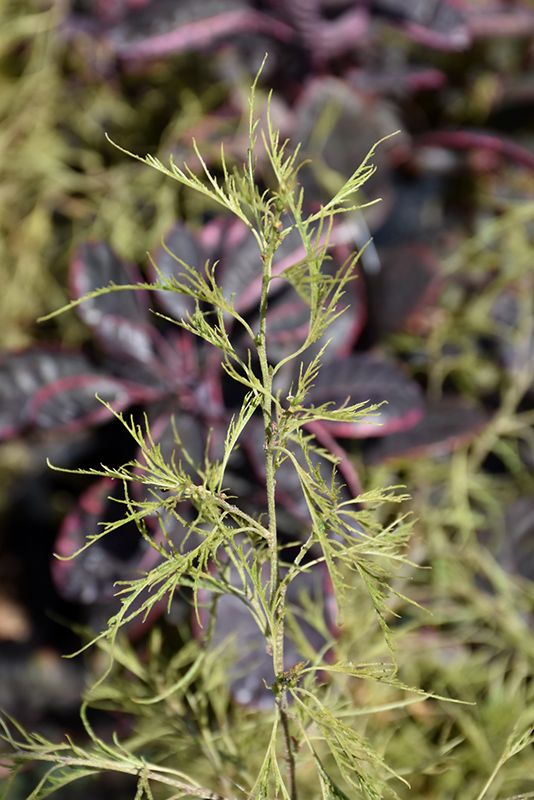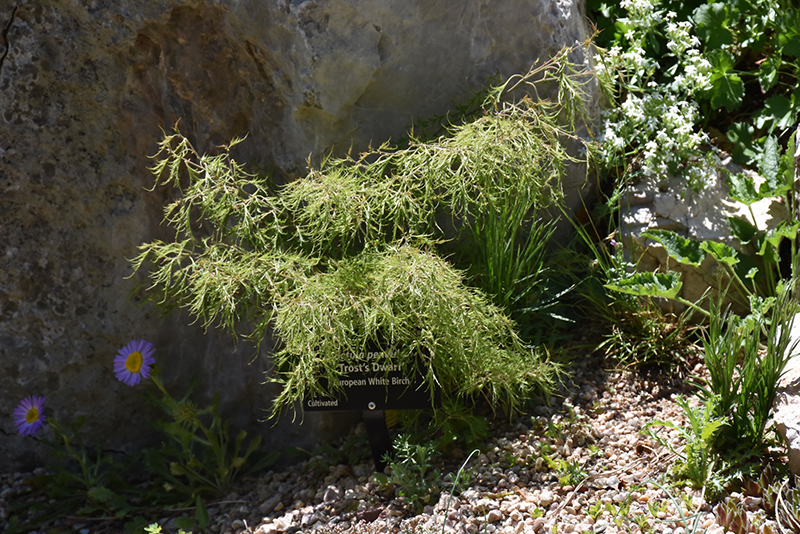Plant Search Tool
This is a 3rd party Knowledgebase and does not reflect actual stock
Trost's Dwarf European Birch
Betula pendula 'Trost's Dwarf'
Height: 5 feet
Spread: 5 feet
Sunlight:
![]()
![]()
Hardiness Zone: 2a
Other Names: Silver Birch, Common Birch
Description:
Very different from the species, this is a small garden-scale plant with an odd growth habit and extremely finely cut leaves; best used as an accent in the garden where its texture will set it apart from other coarser-leaved plants
Ornamental Features
Trost's Dwarf European Birch is primarily valued in the landscape or garden for its broadly spreading habit of growth. It has dark green deciduous foliage. The deeply cut ferny leaves turn an outstanding yellow in the fall.
Landscape Attributes
Trost's Dwarf European Birch is a multi-stemmed deciduous shrub with a ground-hugging habit of growth. It lends an extremely fine and delicate texture to the landscape composition which can make it a great accent feature on this basis alone.
This shrub will require occasional maintenance and upkeep, and should only be pruned in summer after the leaves have fully developed, as it may 'bleed' sap if pruned in late winter or early spring. Gardeners should be aware of the following characteristic(s) that may warrant special consideration;
- Insects
Trost's Dwarf European Birch is recommended for the following landscape applications;
- General Garden Use
Planting & Growing
Trost's Dwarf European Birch will grow to be about 5 feet tall at maturity, with a spread of 5 feet. It has a low canopy, and is suitable for planting under power lines. It grows at a slow rate, and under ideal conditions can be expected to live for approximately 20 years.
This shrub does best in full sun to partial shade. It prefers to grow in average to moist conditions, and shouldn't be allowed to dry out. It is not particular as to soil type or pH. It is somewhat tolerant of urban pollution. Consider applying a thick mulch around the root zone in winter to protect it in exposed locations or colder microclimates. This is a selected variety of a species not originally from North America.







